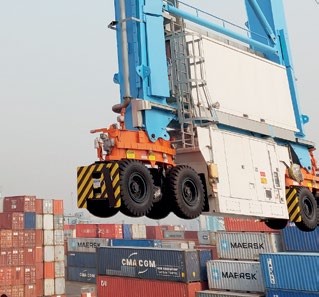NAIRAMETRICS
- Nigerian billionaires choose to stay in the country due to significant disparities in tax rates compared to developed economies like the UK and the US, where higher-income earners face higher tax burdens.
- Some billionaires benefit from monopolistic business ventures supported by the Nigerian government, while developed economies have antitrust laws that promote fair competition and limit market power.
- While the allure of developed economies may be enticing, these billionaires weigh the benefits against the unique opportunities and circumstances presented in Nigeria.
In 2022, the National Immigration Service reported that a staggering 1,899,683 passports were issued, indicating a significant outflow of Nigerians seeking better opportunities abroad.
This phenomenon, often referred to as the “brain drain,” has caught the attention of experts and policymakers. Surprisingly, amidst this mass exodus, Nigeria’s billionaires remain resolute in their decision to stay.
Figures like Aliko Dangote have openly declared their commitment to the country, prompting an investigation into the reasons why these billionaires choose not to relocate.
Tax Rates: A Favorable Comparison
One crucial factor that may contribute to Nigerian billionaires’ decision to remain in the country is the significant disparity in tax rates between Nigeria and countries like Canada, the United Kingdom, and the United States.
- The Nigerian Federal Inland Revenue Service reports that only a small fraction of the labour force is captured in the tax net. In contrast, countries such as the United Kingdom have stringent measures in place to prevent tax evasion, especially for high-net-worth individuals like Femi Otedola and Aliko Dangote.
- For instance, if Aliko Dangote, with a net worth of $9.7 billion, were a resident of the United Kingdom, his tax liability would amount to up to 40% of his income. The UK’s progressive income tax system has different tax bands based on income levels, with the highest bracket being 45% for income above £150,000.
This stark contrast in tax rates presents a compelling financial incentive for Nigerian billionaires to stay put.
Economic Monopoly: A Distinct Advantage
In Nigeria, there are speculations that certain billionaires have been able to establish monopolistic business ventures with the support of the government.
One prominent example is the Dangote Group, which operates at the top of the manufacturing chain for staple food and building items.
Reports suggest that Dangote’s business empire owes much of its success to governmental support, including waivers and subsidies in foreign exchange.
However, in developed economies like the United States and the United Kingdom, antitrust laws are in place to promote fair competition and prevent the concentration of market power.
These laws ensure that mergers and acquisitions do not create monopolies, and if necessary, they break up firms that have become monopolistic.
Consequently, billionaires running businesses in these countries face stiffer competition, which may discourage them from relocating to more developed economies.


